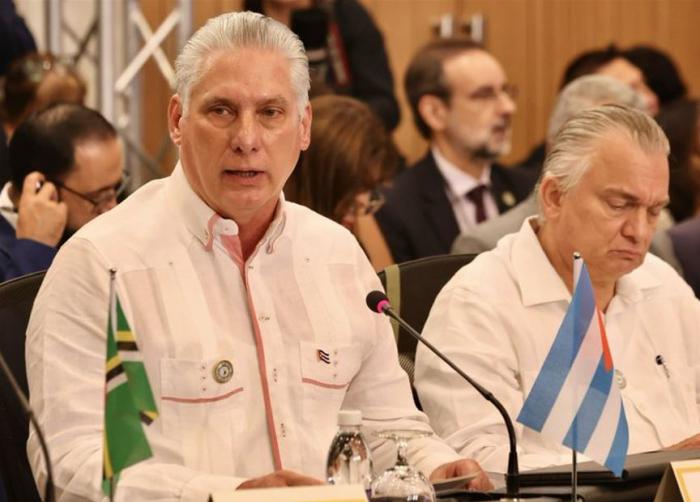Estimated reading time: 2 minutes
Cuban President Miguel Díaz-Canel on Friday ratified his country’s commitment to strengthening peace and unity in Latin America and the Caribbean and called to overcome differences with dialogue and cooperation.
“In the face of differences, dialogue. In the face of challenges, cooperation. In the face of diversity, more unity. In the face of war and violence, let’s defend Peace!”, the president stressed at the 8th Summit of the Community of Latin American States and Caribbean (CELAC) in this capital.
At the event, which commemorates 10 years of the proclamation of the region as a Zone of Peace, Díaz-Canel assured that “supporting peace is defending each people’s right to choose their political model and their own path to economic and social development freely.”
He insisted on the need to preserve tranquility so that people can continue to approach each other and debate in a civilized and respectful manner.
The Cuban head of State noted that defending peace also means more rejection of unilateral coercive measures and blockades imposed by powerful countries that seek to act as universal judges to isolate and subjugate sovereign States.
Díaz-Canel also pointed out that the Peace Proclamation is very young, but it is, without a doubt, a historic milestone in the equally young history of CELAC.
The Cuban president noted the honor that it represents for Cuba that the signing of this emblematic document by the heads of State and Government of all 33 countries in the region at the Havana Summit.
He described the proclamation as a hope for millions of people, whose main concern is survival in a world convulsed by violence and wars.
In this regard, peace is not only a legitimate right of all peoples, it is a fundamental condition for the enjoyment of all human rights, he added.
“The region and the world need peace to concentrate all their capacity, intelligence and resources on confronting the true enemies of the human species, which are hunger, poverty, climate change, illiteracy, diseases, natural resource depletion, and the marginalization of the population,” the Cuban head of State warned.
He also said that the proclamation signed in Havana is a document that commits the people and the world, in addition to being a valuable legacy to future generations who will benefit from the wise decision to banish the use of force in the region forever. (PL).






































